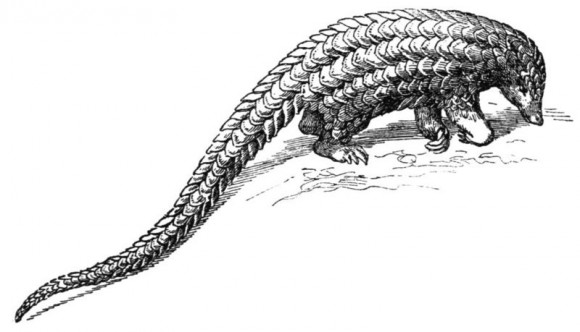I wish to inform you that I am unfortunately not a PKR member, but I must confess, due to the unfolding of events over the past few days I have been seriously considering becoming one. Your inane comments have now prompted me to take the plunge. Thank you.
Americk Sidhu
Dear Mr. Zahrain,
First let’s try and get things in perspective.
You were elected as a Member of Parliament by a majority of voters in your constituency who agreed with and who supported the manifesto of the party whom you represented at that time. This means a majority of the voters in your constituency wanted the opposition to represent them. They did not want the Barisan Nasional to represent them.
This is as simply as I can put it. It is not really a very complicated matter to digest so please try and persevere.
Instead, you have betrayed the trust your supporters placed in you by abandoning all the principles you stood for and supporting the Barisan Nasional instead. You did this without first asking the majority of voters in your constituency permission to do so. The excuse that you are a BN friendly independent MP does not detract from the fact that you have abandoned the voters who elected you to represent them by disregarding their wishes and aspirations for a better nation and future.
Let me tell you what an honourable man would have done. An honourable man would have vacated his seat and requested the electorate in his constituency to decide whether they would still support him even though he had betrayed them.
This you did not do, so in my book you are a dishonourable man. You are now a Member of Parliament under false pretences. You shouldn’t really be there because a Member of Parliament should be someone with integrity and honour, besides being legitimately elected by a majority of voters in that constituency.
As a dishonourable member of Parliament under false pretences who has betrayed the electorate he represents, I do not feel you are in a position moral or otherwise, to sanctimoniously criticize the actions of your past fellow ‘brothers-in-arms’ at the same time hiding behind the unholy alliance you have created for yourself with, what most right thinking members of Malaysian society consider to be, the devil incarnate.
Furthermore, the comments you have made regarding the ‘trap’ set by PKR’s political games for the MACC borders on the ludicrous.
It is the MACC’s job to interview Mr. P. Balasubramaniam. No one had set a ‘trap’ for them. They are the Maha Gurus of entrapment, not us. They are the ones who said they wanted to interview Mr. P. Balasubramaniam. We, as Bala’s lawyers did everything we could to assist them. This had nothing to do with PKR. Just because the evidence Bala has may affect a leader of your newfound alliance does not mean it is an opposition-concocted story. It is a story begun by your new buddies, not Bala.
From your praise of the MACC pulling out of the London interview at the last moment, I can only derive from this an assumption that you are hell bent on collaborating with those who are intent on perverting the course of justice or obstructing it. I cannot see any other reason for the comment you have made.
You have then gone on to make some serious accusations directly affecting my integrity as a professional by blatantly implying that I have prepared a script for Bala to regurgitate to the investigative authorities. I hope you have concrete proof of these accusations because if you don’t you are going to look even more silly than you are at the moment.
You appear to know more about my political inclinations and my relationship with Anwar Ibrahim than I do. I am not sure where you have obtained your information from but I would suggest you look for an alternative source, as it is not very effective. I wish to inform you that I am unfortunately not a PKR member, but I must confess, due to the unfolding of events over the past few days I have been seriously considering becoming one. Your inane comments have now prompted me to take the plunge. Thank you.
You have to be a little demented to think that Zaid and Anwar ought to share the responsibility of persuading RPK and Bala to return to Malaysia to “face up to anyone” as established past precedence indicates that anyone regarded as an embarrassing pest to the powers that be should expect to have two bullets embedded in their respective heads and their mortal remains distributed amongst the belukar in some secondary jungle with the aid of military grade explosives.
RPK and Bala are not fools.
Finally, Zahrain, when you and your new found colleagues find time to extricate your heads from the sand in which they are firmly ensconced, you may realise that the average Malaysian is no longer a fool with a penchant to assimilate political garbage without question.
It is a shame you were not present at the launch of ‘Friends of Pakatan Rakyat’ in London last Sunday. It would have been an eye opener for you, as it was for me. I now realise that there are a significant number of Malaysians who have a shared desire to see all the wrongs of the past be put right and the most enlightening aspect of that launch was the support shown by Malaysians of all races and backgrounds. And this is the Malaysia everyone wants. Not the Malaysia you and your friends have slowly destroyed with your self-serving avarice.
Americk Sidhu
Dear Mr. Zahrain,
First let’s try and get things in perspective.
You were elected as a Member of Parliament by a majority of voters in your constituency who agreed with and who supported the manifesto of the party whom you represented at that time. This means a majority of the voters in your constituency wanted the opposition to represent them. They did not want the Barisan Nasional to represent them.
This is as simply as I can put it. It is not really a very complicated matter to digest so please try and persevere.
Instead, you have betrayed the trust your supporters placed in you by abandoning all the principles you stood for and supporting the Barisan Nasional instead. You did this without first asking the majority of voters in your constituency permission to do so. The excuse that you are a BN friendly independent MP does not detract from the fact that you have abandoned the voters who elected you to represent them by disregarding their wishes and aspirations for a better nation and future.
Let me tell you what an honourable man would have done. An honourable man would have vacated his seat and requested the electorate in his constituency to decide whether they would still support him even though he had betrayed them.
This you did not do, so in my book you are a dishonourable man. You are now a Member of Parliament under false pretences. You shouldn’t really be there because a Member of Parliament should be someone with integrity and honour, besides being legitimately elected by a majority of voters in that constituency.
As a dishonourable member of Parliament under false pretences who has betrayed the electorate he represents, I do not feel you are in a position moral or otherwise, to sanctimoniously criticize the actions of your past fellow ‘brothers-in-arms’ at the same time hiding behind the unholy alliance you have created for yourself with, what most right thinking members of Malaysian society consider to be, the devil incarnate.
Furthermore, the comments you have made regarding the ‘trap’ set by PKR’s political games for the MACC borders on the ludicrous.
It is the MACC’s job to interview Mr. P. Balasubramaniam. No one had set a ‘trap’ for them. They are the Maha Gurus of entrapment, not us. They are the ones who said they wanted to interview Mr. P. Balasubramaniam. We, as Bala’s lawyers did everything we could to assist them. This had nothing to do with PKR. Just because the evidence Bala has may affect a leader of your newfound alliance does not mean it is an opposition-concocted story. It is a story begun by your new buddies, not Bala.
From your praise of the MACC pulling out of the London interview at the last moment, I can only derive from this an assumption that you are hell bent on collaborating with those who are intent on perverting the course of justice or obstructing it. I cannot see any other reason for the comment you have made.
You have then gone on to make some serious accusations directly affecting my integrity as a professional by blatantly implying that I have prepared a script for Bala to regurgitate to the investigative authorities. I hope you have concrete proof of these accusations because if you don’t you are going to look even more silly than you are at the moment.
You appear to know more about my political inclinations and my relationship with Anwar Ibrahim than I do. I am not sure where you have obtained your information from but I would suggest you look for an alternative source, as it is not very effective. I wish to inform you that I am unfortunately not a PKR member, but I must confess, due to the unfolding of events over the past few days I have been seriously considering becoming one. Your inane comments have now prompted me to take the plunge. Thank you.
You have to be a little demented to think that Zaid and Anwar ought to share the responsibility of persuading RPK and Bala to return to Malaysia to “face up to anyone” as established past precedence indicates that anyone regarded as an embarrassing pest to the powers that be should expect to have two bullets embedded in their respective heads and their mortal remains distributed amongst the belukar in some secondary jungle with the aid of military grade explosives.
RPK and Bala are not fools.
Finally, Zahrain, when you and your new found colleagues find time to extricate your heads from the sand in which they are firmly ensconced, you may realise that the average Malaysian is no longer a fool with a penchant to assimilate political garbage without question.
It is a shame you were not present at the launch of ‘Friends of Pakatan Rakyat’ in London last Sunday. It would have been an eye opener for you, as it was for me. I now realise that there are a significant number of Malaysians who have a shared desire to see all the wrongs of the past be put right and the most enlightening aspect of that launch was the support shown by Malaysians of all races and backgrounds. And this is the Malaysia everyone wants. Not the Malaysia you and your friends have slowly destroyed with your self-serving avarice.





















 By Ken Vin Lek - Free Malaysia Today,
By Ken Vin Lek - Free Malaysia Today, This served not only to silence the reporting of the incidents, but further perpetuated the women’s vulnerability to abuse.
This served not only to silence the reporting of the incidents, but further perpetuated the women’s vulnerability to abuse. At the same time, key figures in the Sarawak state government have attempted to downplay the reports.
At the same time, key figures in the Sarawak state government have attempted to downplay the reports. A 1987 New Straits Times article showed how Sarawak’s Chief Minister Abdul Taib Mahmud froze 25 logging licences of his rivals covering an estimated area of 1.25 million hectares valued between RM9 billion and RM25 billion. The accusations and counter-accusations made it clear that logging licences were used as political favours.
A 1987 New Straits Times article showed how Sarawak’s Chief Minister Abdul Taib Mahmud froze 25 logging licences of his rivals covering an estimated area of 1.25 million hectares valued between RM9 billion and RM25 billion. The accusations and counter-accusations made it clear that logging licences were used as political favours.